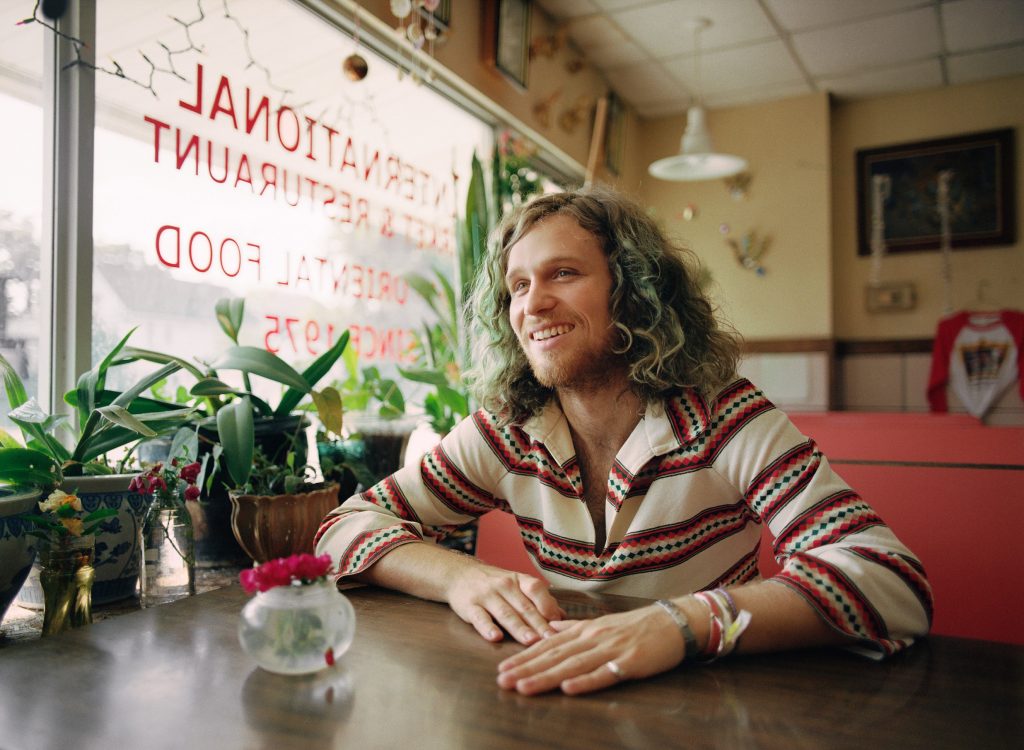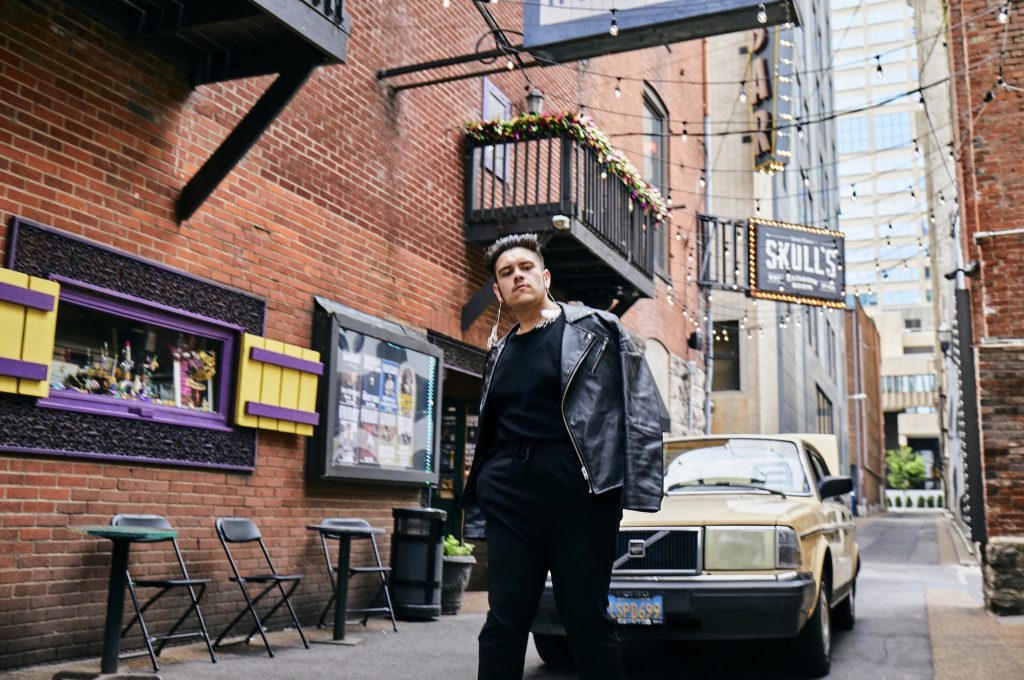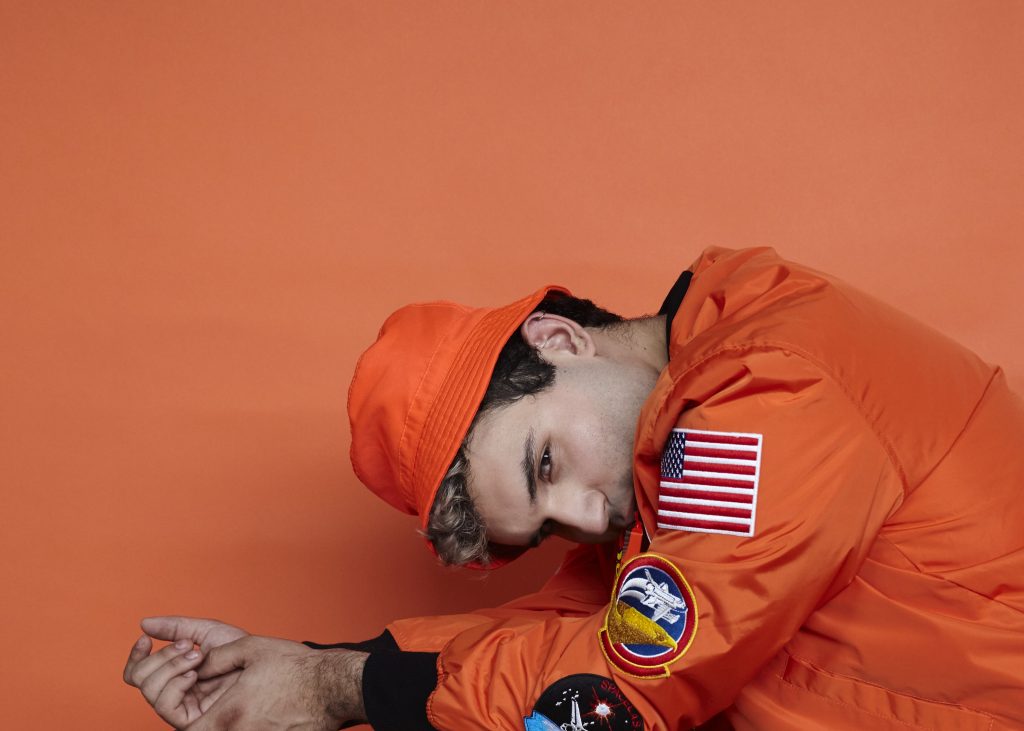
“People are always like ‘Everything happens for a reason,’ which I guess is right,” says promising pop diarist Carlos Vara, tugging lightly at the jewelry dangling from his left ear and sipping a summery gin cocktail. “But at the same time, it’s like, some shit is just fucked up, and you don’t know why.”
Throughout Vara’s life, a lot of shit has been fucked up, but he’s found a way to turn it into something positive. A 22-year-old, openly-gay artist now signed to Warner Records, his music is distilled from a life story that would be hard to believe as the plot to a coming-of-age Oscar contender, born of compelling internal conflicts and speaking to the pain of isolation. It’s confessional, lyric-driven pop in a time of vapid self-congratulation and vibe tracks, and more importantly, it shines a light on the epidemic of insecurity and anxiety afflicting young people around the country. best replica omega watches
moissanite rolex replica
best replica rolex maker
Amplified by social media, instances of major depression are up 63 percent among young adults since 2010 (Journal of Abnormal Psychology), and although Vara’s work is not necessarily intended as an elixir, his sympathetic voice could at least soften the loneliness felt by so many.
Now sheltering from the afternoon heat in an empty East Nashville pub, the conversation quickly turns to the remarkable background which fuels his music.
The multi-cultural son of a nightclub owner in South Carolina, Vara says things were going along fine when one day in the second grade, everything changed. His father attended a church service, and on the way home simply pulled his car over, got out and baptized himself with a random bottle of water. From that moment on, the family would become strict Pentecostal fundamentalists – with all the snake handling, speaking in tongues and predicting the future included – and Vara’s father would go on to lead the biggest Spanish-speaking congregation in the state. He closed the nightclubs the very next day and forbid all of the secular normalities the family was used to – and needless to say, life became difficult for a closeted 8-year-old.
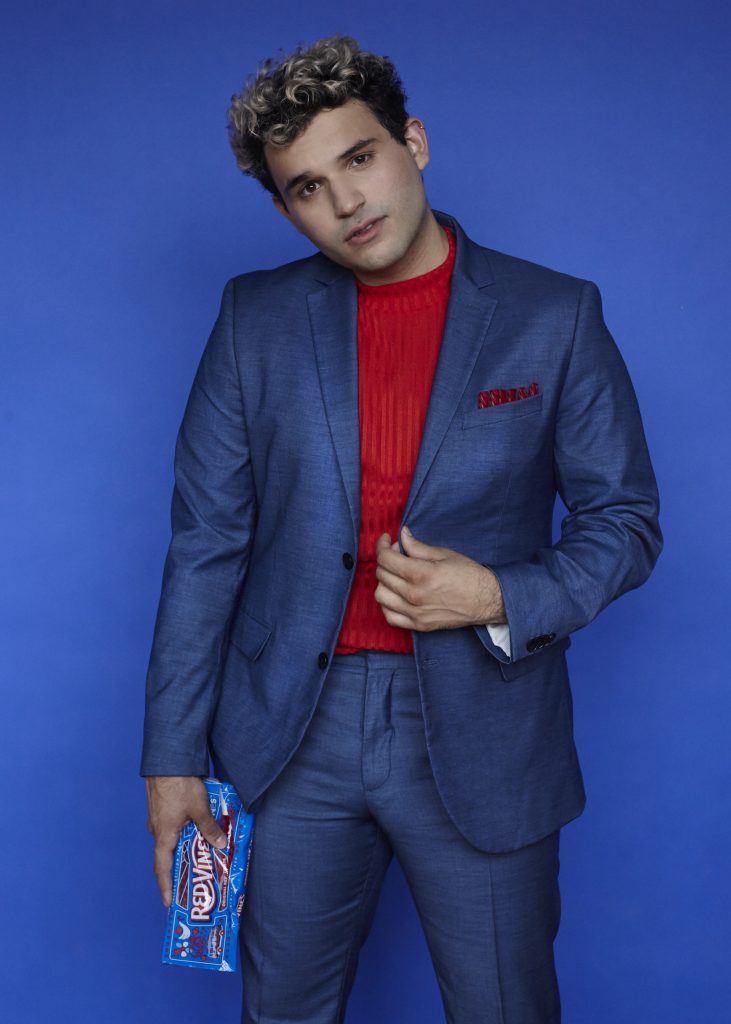
Soon Vara began acting out in school and was diagnosed with Obsessive-Compulsive Disorder. That evolved into a debilitating case of Tourettes Syndrome, and after his symptoms started literally tearing his body apart – with violent convulsions and self-harming tics forcing him to be restrained in a wheelchair – Vara left school entirely. He spent about a year confined to his bedroom, plucking out simple chords on a cheap keyboard and secretly devouring the music of Britney Spears, Mariah Carey and Whitney Houston, the Beach Boys, the Beatles, Queen, and Janis Joplin, only beginning to recover when The X Factor held open-call auditions in nearby Charleston. With such a juicy, made-for-TV story and a natural vocal gift to present, Vara made it into the show’s Top 15 before getting eliminated. “I don’t talk about it much because it was one of those sad-vibe auditions,” he says now.
Still, it set the next chapter in motion. While prepping for the show, Vara met producer Josh Williams in Atlanta and was soon following Williams to Nashville. But at the time, he was still closeted from himself, blindly grappling with identity issues and intense insecurity. All of it now feeds his music, combining dramatic pop sonics with theatric vocals and soul-bearing lyrics, brutally honest about the struggle taking place underneath Vara’s carefully-crafted public mask.
“The pain gave me a perspective,” he says. “Because all those things happened, I’m able to use that pain and put it into music to reach out to people who are going through it, too.”
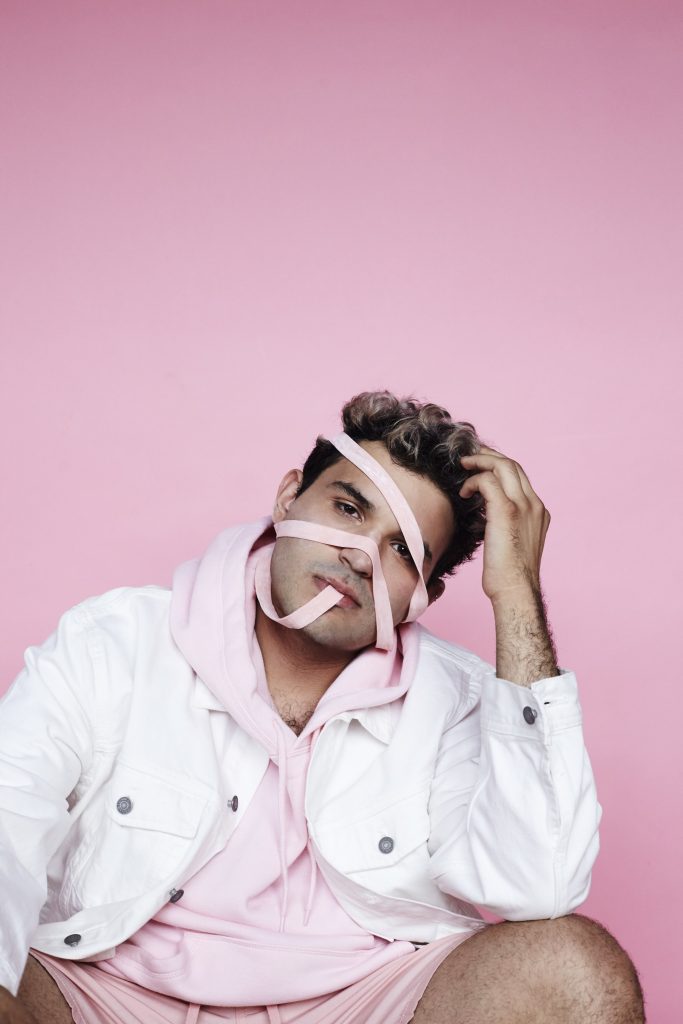
Vara says he always knew he was gay, but like many boys in religious families were terrified to admit it – even to himself. Instead, he tried to “resist,” feeding a deep self-hatred which became the foundation of all the issues that followed. Even after leaving home and arriving in Nashville, he still couldn’t find a way to accept himself, and it led to a severe breakdown.
“I can’t date a girl – I just can’t even fake it,” Vara explains. “I was like ‘If God did everything for a reason, and I know I’m gay and I pray and pray and pray for this to go away … and it doesn’t … it’s like ‘Did God create me to destroy me?’
“All along I’m doing my best to be a good person and live a good life, so I got really depressed,” he goes on. “One day I was working at Chili’s, and when I said something about Beyonce, this girl was like ‘Are you gay, Carlos?’ There wasn’t even any meanness in it, but I got so upset like ‘NO FUCK YOU!’ I remember going home and being so upset that I got that upset, and I was like ‘Am I gonna have to live this way for my entire life?’”
It was all too much, so Vara wrote a coming-out letter and posted it to Facebook. Predictably, it did not go well. “Culturally, El Salvadorans and Greeks are very machismo,” he says with a laugh, explaining his family’s uniformly negative reaction. “Even though the Greeks were having gay sex before anybody else.”
Vara dove into music as a safe space, channeling his torment into self-produced tracks like “Numb.” With its modern-Motown flavor and gut-wrenching lyrics, Vara lays out the emotional overload of finally accepting himself, yet being cast out from his family and simultaneously trying to learn the rules of a brand new lifestyle. He filmed a low-budget video in his apartment and sent it to every blogger he could track down, and eventually started hearing from big names like producer/songwriter Busbee. Now, after signing with Warner last year, he splits time between Los Angeles and Nashville, working to hone an emotionally sophisticated style of pop.
“My first three songs are all from little voice memos I wrote in my bedroom,” he says. “Some writers like to have story concepts, but I might just get high at 2 a.m. and put words on a page. … And since writing has been my coping mechanism, like when I’m feeling really fucked up emotionally, I put it in a song and then I can step back and understand it.”
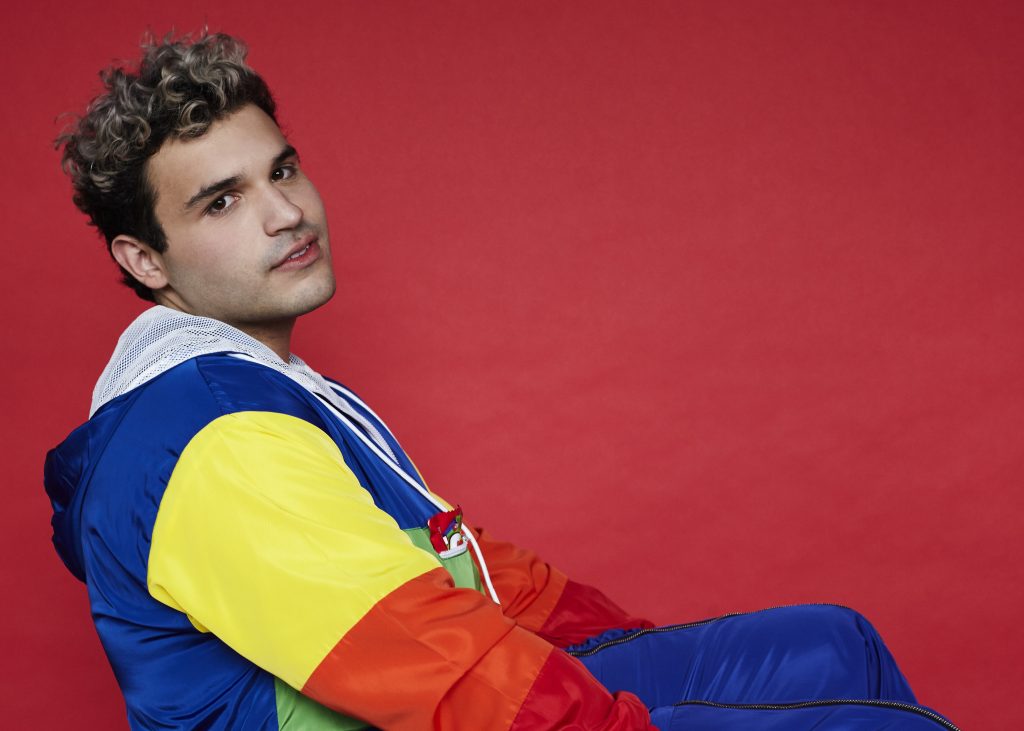
Tracks like the June-released “Impossible” do in fact feel like a late-night journal entry, with foreboding beats and falsetto vocals telling a story “about legitimately hating myself,” Vara admits. Then he drops a Gospel-choir bridge right in the middle, drawing a line straight back to the life that made loving himself feel so “impossible” in the first place. “I think the goal of something like that is not to leave feeling like you can do better, but just being OK for those three minutes,” he says. “To allow yourself to feel that emotion and know others feel it, too.”
Meanwhile, the propulsive energy of “Confident” sends listeners in one direction before pulling a U-turn. Grounded in a deep sense of sarcasm, it deals directly with the gap between how others see us, and how we see ourselves. After Vara got his record deal, he spent a summer in West Hollywood as a newly unshackled 21-year-old who had just come out, and trying to fit into that hyper-stylized world was another kind of challenge.
“I was going out all the time, and the for the first time I was surrounded by this gay community and I had friends, and it was exciting, but at the same time I’m such an insecure person,” Vara says. “Everybody is so beautiful and hot and cool, and I had no perspective. I was out one night, and someone said ‘I love how you walk in the room, you’re so confident,’ and internally I was like ‘Bitch, I hate myself right now.’ One-on-one, I’m very extroverted, and I love wearing crazy clothes and doing the most, but emotionally, I’m the opposite. So that song just describes those L.A. nights when I was trying to do the most and act the most but also not being happy with myself, and using weed to numb it all.”
“Goin’ out tonight / I’m catching everybody’s eye / Like I’m the shit, but it’s a lie / They’re askin’ ‘How you so confident?’” goes the thumping chorus.
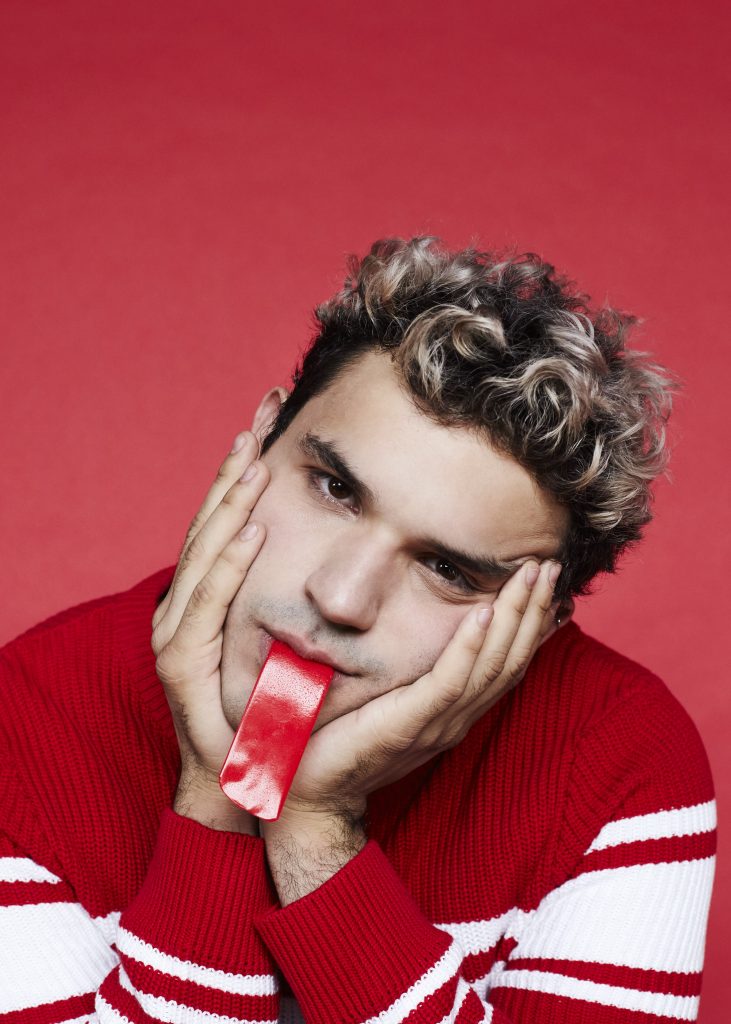
Vara’s new single, “Want Me To,” further traces his transition, describing his first attempt at a romantic relationship with a guy. Big, soul-grooving rhythms fuse with a touch of Beach Boys surf pop and an almost desperate vocal hook, as Vara laments what he might do for his first crush.
“The vibe is like ‘I will hurt myself [emotionally] if you want me to,’” he admits. “I’m just trying to capture a specific moment in time, and it’s been cool for me because my lyrics are very vulnerable, but when you put that alongside this really confident production, you get the best of both worlds. It’s this thing that people are bobbing their heads to, but then they listen to the lyrics and they’re like ‘Oh shit.’ that’s my vibe.”
That vibe will get fleshed out a little more with an upcoming five-track E.P., and Vara’s already got songs in the bank for a larger project to come. But having only arrived in Nashville three years ago, he’s also trying not to get ahead of himself. He’s not dating and instead attends regular therapy, and the relationship with his mom, at least, is on the upswing. “I’m like a healthy emotional wreck now,” he says with a laugh.
He might not have any answers, and he may still have issues to work on, but nobody’s perfect. Vara’s been through the looking glass and across the Rubicon, and just by giving voice to that journey, his brand of pop could change not just a Friday night, but perhaps a life.
“I think the reason I fell in love with music as a kid, even in the church, is because when you hear a good song you feel this thickness in the atmosphere – it’s like it changes everything,” he says. “When people listen to my music, I just want them to 100 percent live in that moment. Not everything needs to have a happy ending, sometimes it’s OK just to feel.”

